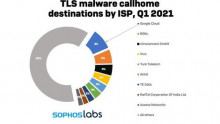Google Gets Serious About Two-Factor Authentication. Good!
“Turn on two-factor authentication” is solid advice, and WIRED has repeated it for years. Doing so ensures that your password isn't the only line of defense against unauthorized access to your accounts. The only problem? The onus was always on you to figure out how to make it happen. Now, Google is taking its first steps toward enabling two-factor by default for all its users—and where Google goes in web security, the rest of the industry often follows.













































































